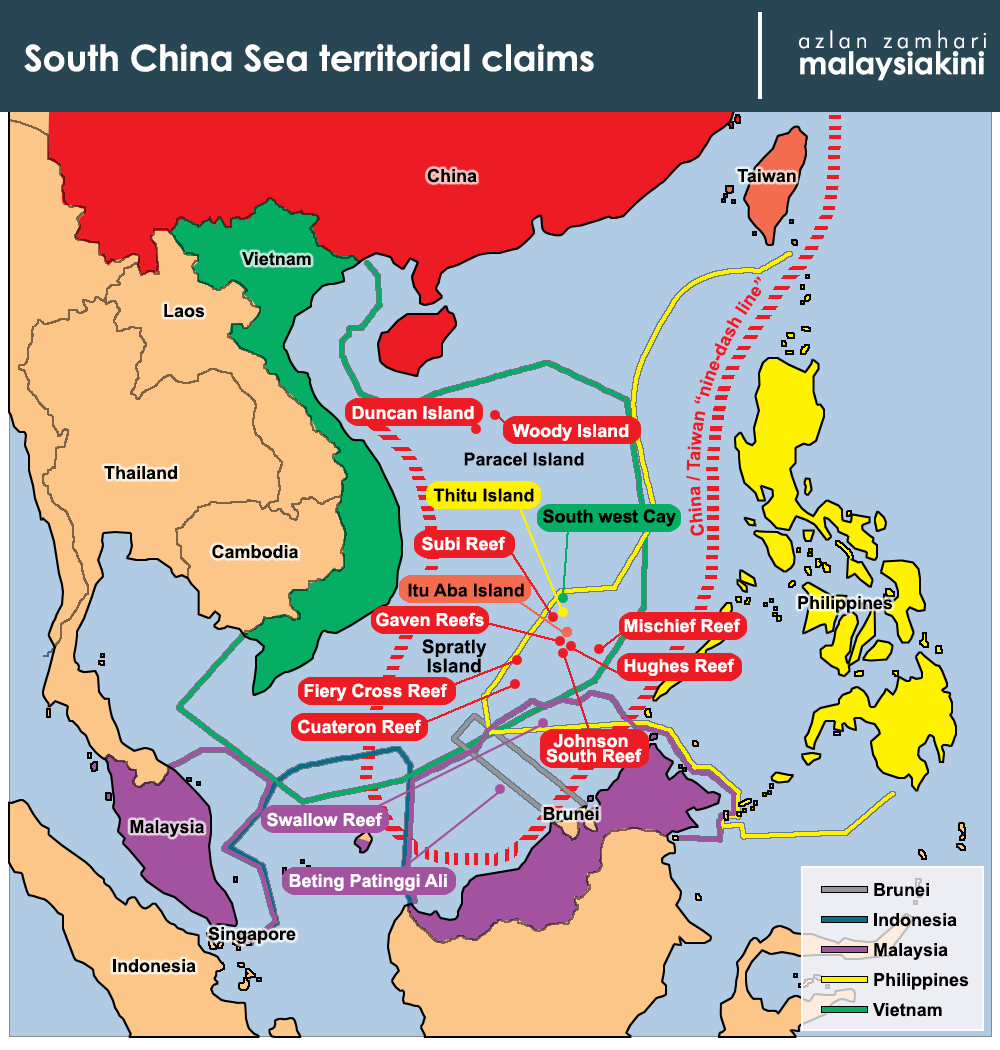MP SPEAKS The ruling by the Permanent Court of Arbitration on July 12 establishes a number of important findings that are consequential to the areas which are claimed by both Malaysia and China in the South China Sea.
Firstly, the tribunal found that “there was no legal basis for China to claim historic rights to resources within the sea areas falling within the ‘nine-dash line’".
Secondly, the tribunal found that “none of the features claimed by China was capable of generating an exclusive economic zone (EEZ)” of 200 nautical miles. As such, some of the features under dispute lie within the EEZ of the Philippines.
Thirdly, the tribunal found that China had violated the sovereignty of the Philippines by obstructing fishing activities by fishermen from the Philippines, constructing artificial islands and failing to prevent Chinese fishermen from fishing in the Philippine’s EEZ.
Fourthly, the tribunal found that China had caused “severe harm” to the marine environment as a result of its large-scale reclamation activities in seven features in the Spratly Islands.
Fifthly, the tribunal found that China had “violated its obligations to refrain from aggravating or extending the Parties’ disputes during the pendency of the settlement process” because of its large-scale reclamation activities.

The findings of the tribunal, if applied to other cases in the South China Sea, would strengthen Malaysia’s claim on features such as James Shoal or Beting Serupai, which lies a mere 80km northwest of Bintulu, Sarawak and is well within the continental shelf of Malaysia and the 200 nautical mile EEZ.
Malaysia’s claim to the North Luconia Shoals (or Gugusan Beting Raja Jarun) and the South Luconia Shoals (Gugusan Beting Patinggi Ali), which are located approximately 100km from Sarawak, would also be strengthened.
Continue negotiations
Malaysia’s sovereignty over these features have been challenged by China in the recent past, most notably by Chinese navy patrols in James Shoal in 2013 and 2014 and more recently, in March 2016, by Chinese Coast Guard ships in the South Luconia Shoals.
Even though the ruling of the tribunal is binding on all signatories of UNCLOS, China has already said that it does not recognise this tribunal’s jurisdiction.
Given the importance of China as a trading and economic partner, Malaysia should minimise the risk of agitating China by continuing bilateral negotiations on the areas of dispute as well as negotiating for the establishment of a robust Code of Conduct (COC) in the South China Sea between Asean and China.
The option to use international arbitration as a means to seek a decision on the areas of dispute between Malaysia and China in the South China Sea should be used strategically and when other options have been taken off the table.
ONG KIAN MING is DAP's MP for Serdang.

